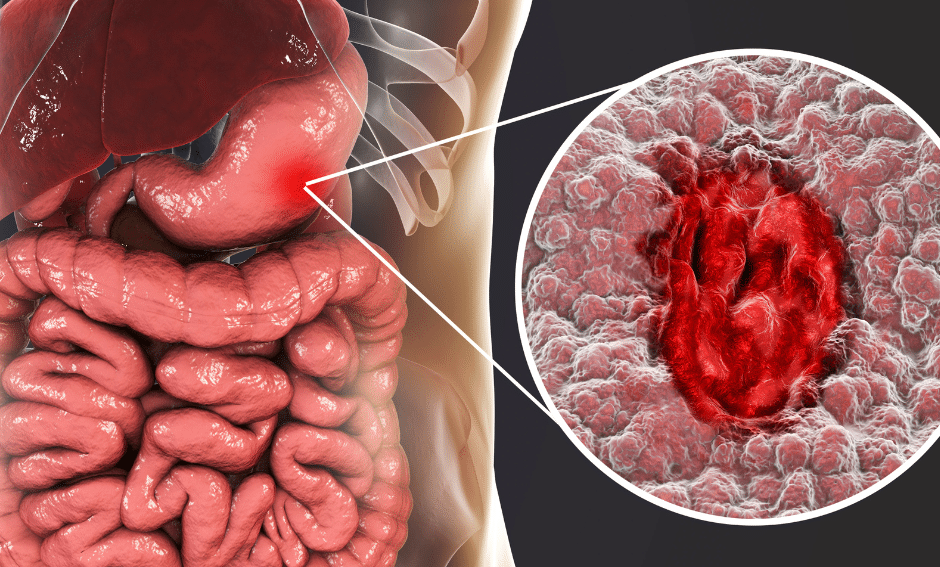National Colorectal Cancer Awareness Month: What You Should Know

About Colon Cancer Awareness Month
Colorectal cancer, which is cancer of the colon or rectum, is the third most common type of cancer and second leading cause of cancer death in the United States. March is National Colorectal Cancer Awareness Month, when patients, survivors, and caregivers are encouraged to share their stories, raise awareness, and educate others on the importance of early detection. Together, we can help advocate for increased awareness and support research to help reduce the number of people affected by this illness.
To help promote the cause, we have put together the most important facts you should know about colorectal cancer and ways to get involved this month. Keep reading to learn more.
Symptoms of Colon Cancer
Common warning signs of colon cancer include:
- Rectal bleeding
- Blood in your stool that may make it look dark
- Cramps, gas, or persistent abdominal discomfort
- Unexplained weight loss
- A persistent change in your bowel habits (ex: diarrhea, constipation, or change in stool consistency)
It’s important to note that many individuals with colon cancer do not experience any symptoms during the early stages of this disease. Oftentimes, blood loss can build up and lead to anemia. This is why it is crucial that you schedule a routine colon cancer screening to ensure that you are healthy. Most people begin screenings between the ages of 45 and 50. However, it is best to speak with your doctor to determine at what age you should begin your colon cancer screenings.
Colon Cancer Risk Factors
While doctors aren’t certain what causes most colon cancers, there are some risk factors that make you more likely to be diagnosed with it. Colorectal cancer usually affects older adults, but it can be diagnosed at any age in both men and women. Factors that may increase your risk of colorectal cancer include:
- Personal history of colorectal cancer or polyps
- Family history of colon cancer
- Inherited syndromes that increase colon cancer risk, including familial adenomatous polyposis (FAP) and Lynch syndrome
- A low-fiber, high-fat diet
- Diabetes
- Obesity
- Smoking and alcohol use
- A sedentary lifestyle
If you are experiencing any symptoms or possess the risk factors listed above, it is best to speak with a physician right away. He or she can answer any questions or concerns you may have about your colon health. Several colon cancer screening options exist, and your doctor can determine the best option for you.
Lifestyle Changes to Reduce Your Risk of Colon Cancer
While the following lifestyle changes cannot prevent colorectal cancer, they can help reduce your risk of the disease. In addition, these lifestyle changes are beneficial to your overall health, which helps reduce your risk of many other diseases. Lifestyle changes to reduce your risk of colorectal cancer include:
- Eat a healthy diet, including a variety of fruits, vegetables, and whole grains. These types of foods contain vitamins, minerals, fiber, and antioxidants.
- Cut out smoking and alcohol from your diet, or limit alcohol and nicotine consumption as much as possible.
- Exercise most days of the week. Aim for at least 30 minutes of exercise daily. If you haven’t exercised in a long time, don’t overexert yourself. Start slow and gradually build up to 30 minutes per day.
How to Get Involved During Colorectal Cancer Awareness Month
From spreading awareness to donating your time or money, there are many ways to get involved in Colorectal Cancer Awareness Month. Some ideas include:
- Wear a dark blue ribbon: Wearing a dark blue ribbon and/or clothing throughout March helps spark curiosity to start a conversation about colorectal cancer awareness. Specifically, March 6th is Dress in Blue Day. It’s an easy way to spread awareness about the disease through word of mouth.
- Share your story: If you are a survivor or are currently going through treatment, it’s important to share your story with others. Whether it’s in person or on social media, people want to support you on your journey to health.
- Be a buddy: One of the most rewarding ways to give back this month is to become a peer-to-peer buddy with another ally. Survivors and caregivers know better than anyone what the process is like, and can help others manage how their life will change after a cancer diagnosis.
Colon Cancer Screenings in New Jersey
If you are older than 45 or experiencing any of the symptoms listed above, it’s important that you speak with one of our digestive health experts at Digestive Healthcare Center. Our experienced physicians will ensure that you receive an accurate and thorough colon cancer screening procedure, such as a colonoscopy. Our practice proudly offers procedures and treatments for a variety of gastroenterological conditions. With telemedicine appointments available as well as in the office, now is the perfect time to get on top of your digestive health. For more information about our Hillsborough, Somerville, and Warren, New Jersey offices and Colorectal Cancer, please contact us today.
Make an Appointment for Comprehensive Digestive Care in NJ
At Digestive Healthcare Center, we want each patient at our three offices in New Jersey to feel confident about their digestive health. We encourage you to contact us today to make an appointment with one of our expert gastroenterologists – don’t wait to start putting your digestive health first!
Recent Blogs
Learn more about all things digestive health and wellness by checking out our recent gastroenterology blogs.

Infusion therapy has become a vital treatment option for individuals with Crohn’s disease, offering relief when traditional medications may fall short. This method delivers medication directly into the bloodstream, providing quicker and more targeted effects to help manage inflammation, reduce symptoms, and improve quality of life. For those with moderate to severe Crohn’s disease, infusion […]

The Advancement of Ulcerative Colitis Treatment Ulcerative colitis (UC) is a chronic inflammatory bowel disease (IBD) that affects the lining of the colon and rectum. Those diagnosed with UC often experience flare-ups that can significantly impact their quality of life. Fortunately, advancements in medical treatment have made managing this condition more achievable. One option is […]

Diverticular disease and diverticulitis are related digestive health conditions that affect the large intestine (colon). With diverticular disease, small, bulging pockets develop on the lining of the colon. When these pockets become inflamed or infected, the condition is called diverticulitis. They are very common – especially after age 40 – and rarely cause problems. At […]
























